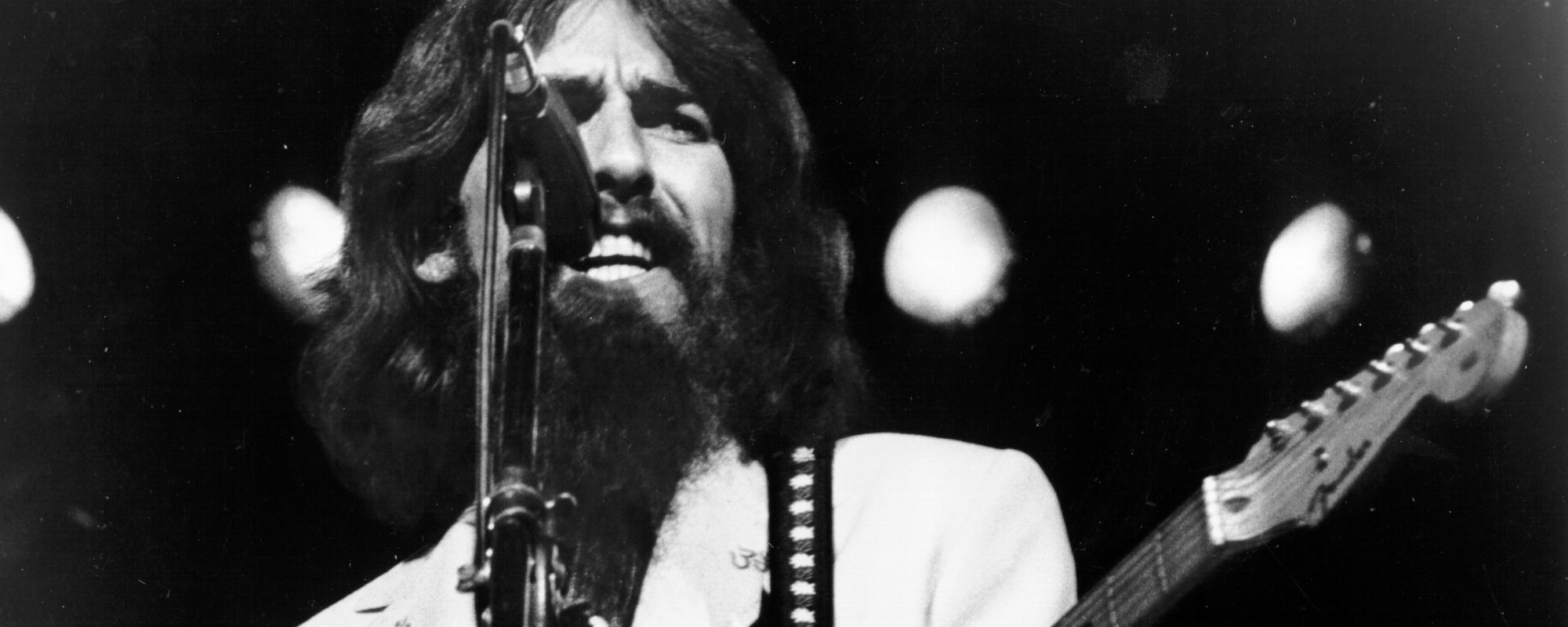
The effortless camaraderie amongst titans of the music world might be the thing that distinguishes the Traveling Wilburys from other supergroups. Yet for all of the vocal-trading on hits like “Handle With Care” and “End Of The Line”, they also took excellent advantage of the individual strengths of the band members on their 1988 smash album Traveling Wilburys Vol.1: The wry storytelling of Tom Petty (“Last Night”), the cosmic yearning of George Harrison (“Heading For The Light”), the rockabilly ease of Jeff Lynne (“Rattled”), and the brilliant inscrutability of Bob Dylan (“Tweeter And The Monkey Man.”)
Videos by American Songwriter
Yet perhaps the ultimate secret weapon the Wilburys possessed was the voice of Roy Orbison. Had they not utilized this weapon properly, it’s doubtful that this collaboration could ever have reached its vast potential. Luckily, Jeff Lynne rose to the occasion and penned “Not Alone Anymore,” a stratospheric weeper on the level of Orbison classics like “Crying” and “It’s Over.”
Lynne jumped at the chance to write for one of his idols. “It was just a thrill really to write a song for Roy Orbison,” he recalled in the documentary The True History Of The Traveling Wilburys. “It was an ambition that I always had and it came true and it was great.”
Yet Lynne was having trouble wrangling the song into shape until a last-minute switcheroo. “One night I broke into the studio to try this alternative chord pattern,” he recalled. “Because that was one particular one where I just couldn’t come to terms with the way it was. And just as an alternative I put this Telecaster on playing these other chords and pulled out all the other stuff. Everybody else arrived and heard it as this new thing, like the same tune but different chords. And they all loved it.”
Lynne’s arrangement, highlighted by a churning rhythm section, his and Harrison’s aching backing vocals, and a downward spiraling synthesizer riff that mirrors the crash and burn of the protagonist, leaves enough space for Orbison to work his melancholy magic. The lyrics are straightforward and simple, the tale of a guy whose negligence cost him true love and whose ignorance won’t let him believe she might ever find someone new until it’s too late.
The song is framed around his remembrances of her former predictions, every one of which comes true in the worst possible way for him. “You always said that I’d be back again,” he begins. “That I’d come running to you in the end.” And then: “You always said that I would know someday/ Just how it feels when your love walks away.” Yet even when he admits his part in her leaving, he can’t comprehend that she’s gone: “I let you down, I let you go/ I lost you, how was I to know.”
When the narrator admits, “I never could see past yesterday,” in the final verse, he is at least finally seeing the error of his ways, although that can provide him no consolation. All that’s left is for Orbison to wrap it up, not so much singing as he is snatching notes out of the sky: “I’ll see you through the rain/ Through the heartache and pain/ It hurts like never before/ You’re not alone anymore.” As he repeats the closing word “anymore”, drums come crashing down around him, just as the narrator’s word crumbles at his feet. But Orbison keeps going higher and higher, projecting infinite sorrow and anguish.
Hardly a month after The Traveling Wilburys debut album was released, Roy Orbison passed away at the age of 52. That he went out at the peak of his powers with “Not Alone Anymore” couldn’t soften the blow too much, but what a legacy he left behind, a legacy enhanced greatly by this tear-stained triumph.














Leave a Reply
Only members can comment. Become a member. Already a member? Log in.